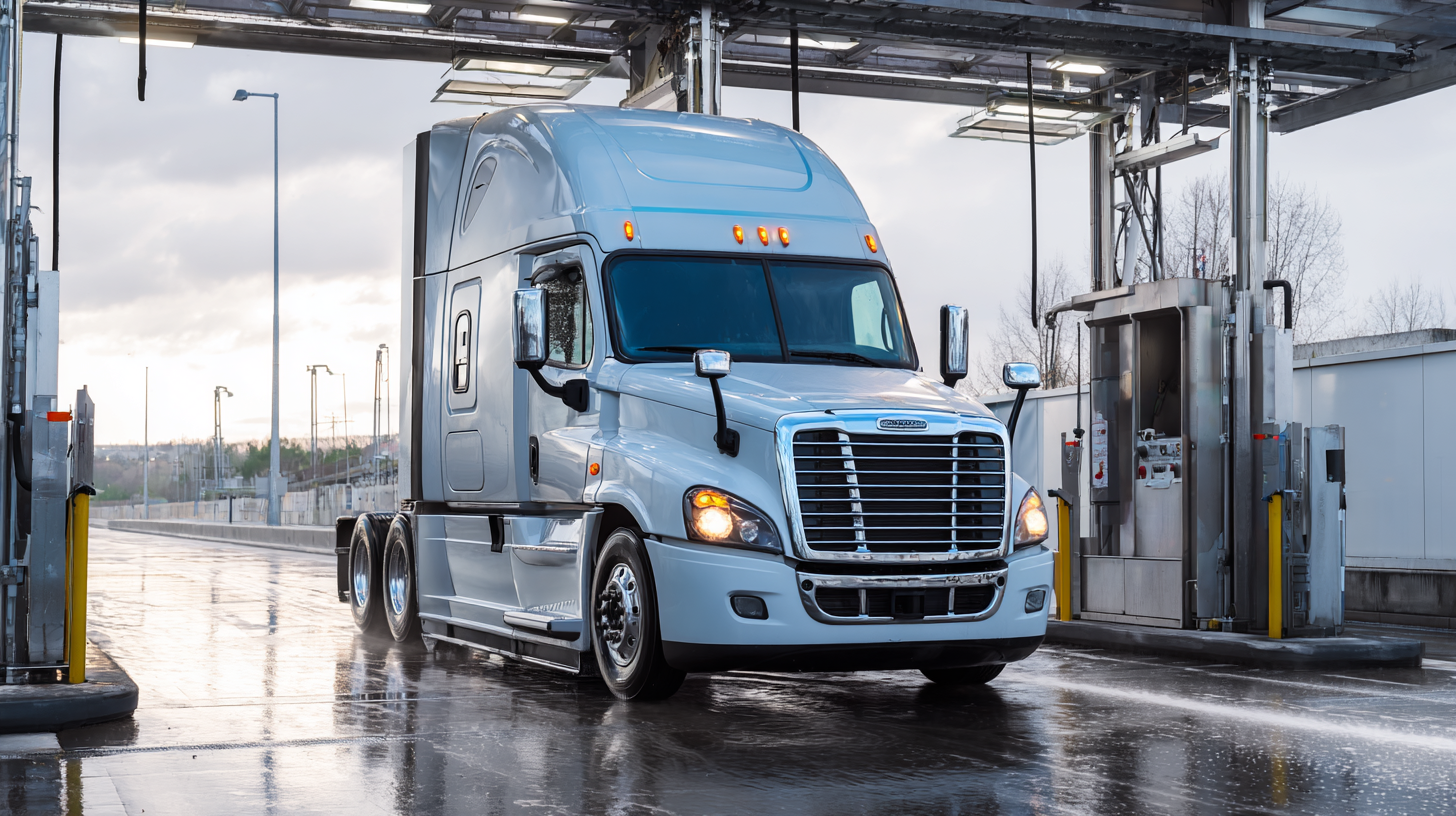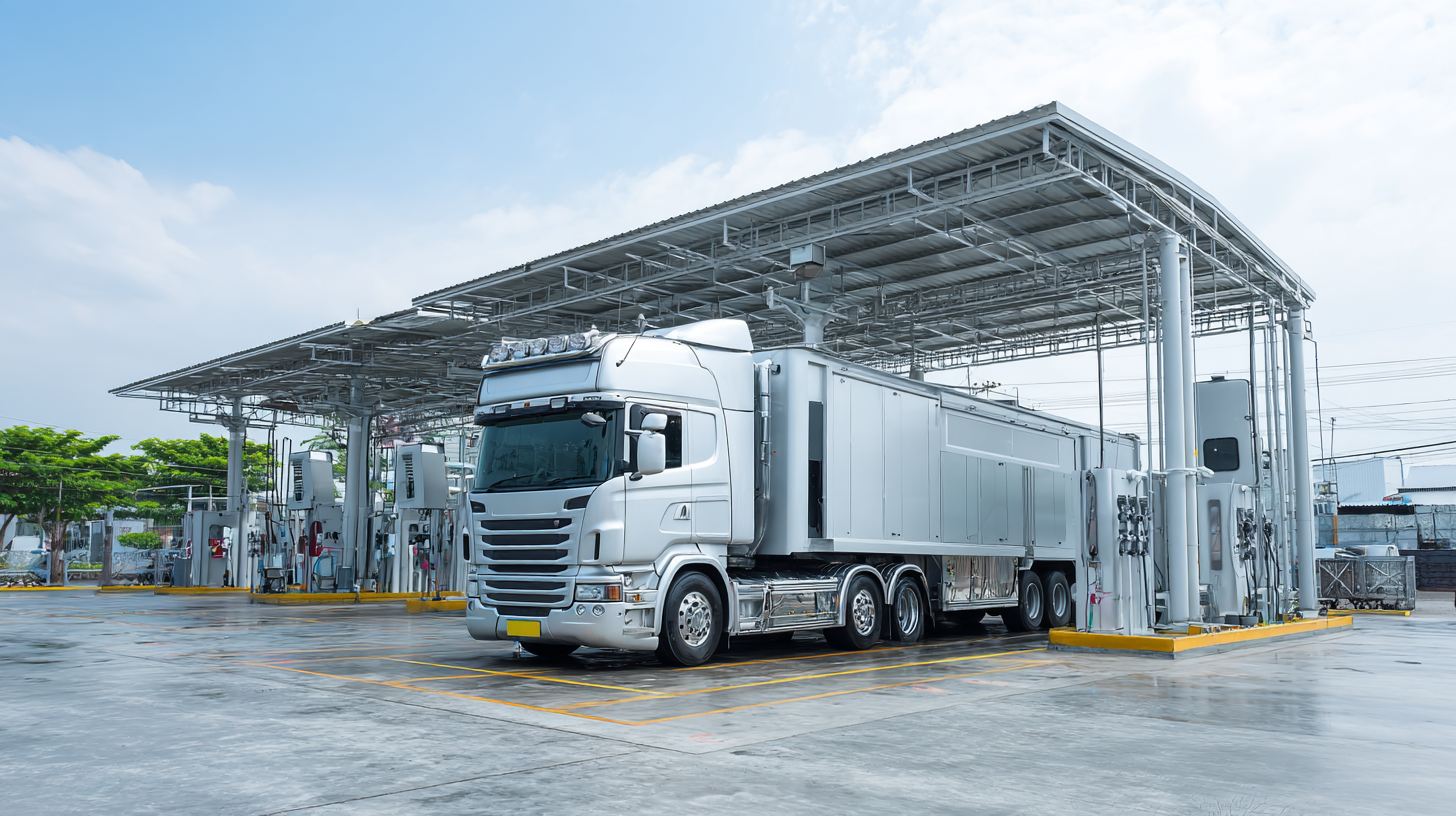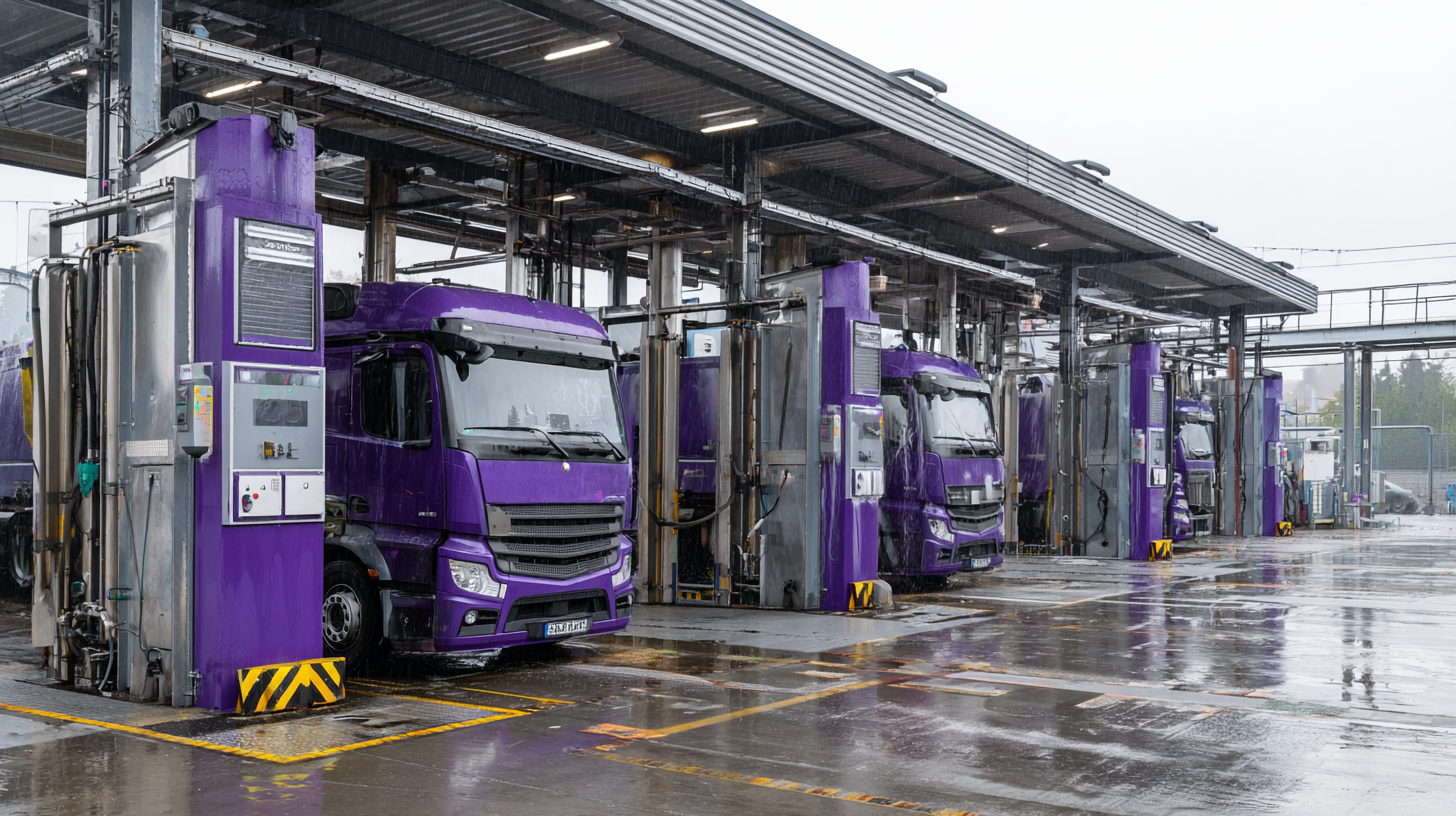What is the Future of Best Automated Truck Wash Solutions for Global Buyers?
As the logistics and transportation industries continue to evolve, the demand for efficient and effective maintenance solutions has become paramount. Among these, Automated Truck Wash systems stand out as a revolutionary advancement, offering significant benefits for global buyers seeking to streamline their vehicle cleaning processes. These state-of-the-art systems not only provide a thorough wash but also save time and labor costs, enhancing operational efficiency. With China's reputation for manufacturing high-quality equipment, the future of Automated Truck Wash solutions is poised for growth, attracting attention from businesses worldwide. This blog will explore the latest trends, innovations, and the potential impact of these automated systems on the industry, shedding light on what global buyers can expect in their pursuit of the best cleaning solutions for their fleets.

Future Trends in Automated Truck Wash Technologies for 2025
As we look toward 2025, the automated truck wash industry is poised for significant advancements driven by technological innovation and sustainability demands. According to a report by MarketsandMarkets, the automated truck wash market is expected to grow at a CAGR of 7.5%, highlighting the rising adoption of automated systems among logistics and transportation companies. Key trends include the emergence of smart washing systems powered by IoT, which enable real-time monitoring and data analysis for improved efficiency and maintenance scheduling.
Moreover, sustainability is becoming a pivotal factor in the development of these technologies. Eco-friendly wash solutions that recycle water and use biodegradable detergents are gaining traction. A study from the International Water Association emphasizes that automated truck washes can reduce water usage by up to 80% compared to traditional washing methods. Additionally, the integration of solar power and energy-efficient machines will likely drive down operational costs and minimize environmental impact, making automated truck washes not just a convenience, but a smart and responsible choice for global buyers in the logistics sector.
What is the Future of Best Automated Truck Wash Solutions for Global Buyers? - Future Trends in Automated Truck Wash Technologies for 2025
| Feature | 2023 Trends | 2025 Predictions | Impact on Industry |
|---|---|---|---|
| Contactless Wash Technology | Increasing adoption among fleets | Mainstream use in operations | Enhanced customer experience and safety |
| Eco-Friendly Solutions | Growing demand for sustainable practices | Regulatory pressures increasing adoption | Reduced environmental impact |
| Automation and Robotics | Initial deployment in select markets | Widespread implementation predicted | Improved efficiency and reduced labor costs |
| Integrated Payment Systems | Point of sale systems evolving | Fully automated transactions | Streamlined operations and faster service |
| Data Analytics | Basic data collection in place | Advanced predictive analytics usage | Optimized maintenance and scheduling |
Innovative Features to Look for in Next-Gen Truck Wash Solutions
The future of automated truck wash solutions is not just about cleanliness; it's about meeting the demands of a new generation of fleet operators. With advancements in vehicle technology and the growing importance of efficiency, next-generation truck wash systems must be equipped with innovative features such as advanced wash technology, water recycling capabilities, and customizable wash programs. These solutions can handle the diverse needs of modern trucks, which often come with intricate designs and surfaces exacerbated by extended usage on the road.
As highlighted by recent industry trends, the move towards integrating automation and AI in truck wash systems is paramount. For example, modern systems should incorporate sensors and smart technologies that adapt the wash process based on the truck's condition and dirt level. According to industry reports, fleet operators that implement advanced wash systems see a significant decrease in downtime, allowing their vehicles to return to the road faster.
**Tip:** When selecting an automated wash system, look for features that offer versatility and adaptability, ensuring the system can cater to various vehicle sizes and designs. Additionally, consider systems that can recycle and conserve water, as sustainability continues to be a crucial factor for modern businesses. Embracing these innovative solutions not only enhances fleet maintenance but also contributes to a greener operational footprint.

Key Challenges Facing Global Buyers of Automated Truck Wash Systems
The global market for automated truck wash systems is expected to grow significantly, driven by increasing demand for efficient vehicle cleaning solutions. However, global buyers are facing several key challenges as they navigate this evolving landscape. One major challenge is the high initial investment associated with automated wash systems, which can range from $20,000 to over $200,000 depending on the features and capacity. Additionally, operational costs, including water usage and maintenance, need careful consideration, as studies show that poorly managed systems can increase expenses by up to 30%.
Another pressing issue is the technology's adaptability to various truck types and sizes. With the rise of electric and alternative fuel vehicles, automated systems must incorporate innovative cleaning technologies, which can lead to compatibility concerns. Buyers should seek systems that offer flexible configurations to accommodate different fleet vehicles, as highlighted in a recent Market Research report predicting a 25% increase in demand for such adaptable solutions by 2025.
**Tip:** When purchasing an automated truck wash system, consider opting for a vendor that offers comprehensive training and support, ensuring your team can maximize the system's efficiency from day one.
**Tip:** It's essential to assess the water recycling capabilities of any system you consider. A high-quality automated truck wash can reduce water consumption by up to 90%, significantly lowering environmental impact while saving on utility costs.
Future of Automated Truck Wash Solutions
Sustainability Practices in Automated Truck Wash Solutions
Sustainability is becoming a pivotal focus in the development of automated truck wash solutions, reflecting broader trends in industries striving for greener practices. As the truck washing system market is projected to grow from USD 2.5 billion in 2024 to USD 4.1 billion by 2033, at a compound annual growth rate (CAGR) of 6.1%, innovations in this sector are increasingly tied to environmental considerations. Modern automated washes are implementing water conservation methods, such as utilizing recycling systems that significantly reduce water waste, aligning with the growing eco-consciousness among global buyers.

Moreover, the rise of green supply chain partners is indicative of a shifting paradigm where companies are not just looking at profitability but also their ecological impact. The increasing interest in sustainable practices is evident as the car wash market is set to reach USD 68.9 billion by 2031, with a notable demand for waterless washing solutions that conserve precious resources. These advancements are crucial as logistics operations recognize the imperative to reduce their carbon footprints, reflecting a commitment not only to efficiency but also to sustainability in the evolving landscape of automated truck washing solutions.
Investment Opportunities in the Automated Truck Wash Market by 2025
As the global logistics and transportation industry continues to expand, the demand for efficient cleaning solutions, such as automated truck wash systems, has surged. The automated truck wash market is poised for significant growth, with investment opportunities projected to increase by 2025. According to industry reports, the market for automated vehicle washing technologies is experiencing a compound annual growth rate (CAGR) of around 5.5%. This growth is driven by the ever-increasing focus on sustainability and operational efficiency within the logistics sector.
Investors are particularly keen on the potential within the automated truck wash market, where initial capital expenditures are offset by long-term savings on labor and water usage. Furthermore, as regulations surrounding vehicle emissions and cleanliness become stricter globally, the need for reliable and efficient cleaning solutions will only intensify. This presents a compelling case for stakeholders who are looking to tap into a burgeoning market both in developed countries and emerging economies, where infrastructure improvements are paving the way for advanced automated wash systems.